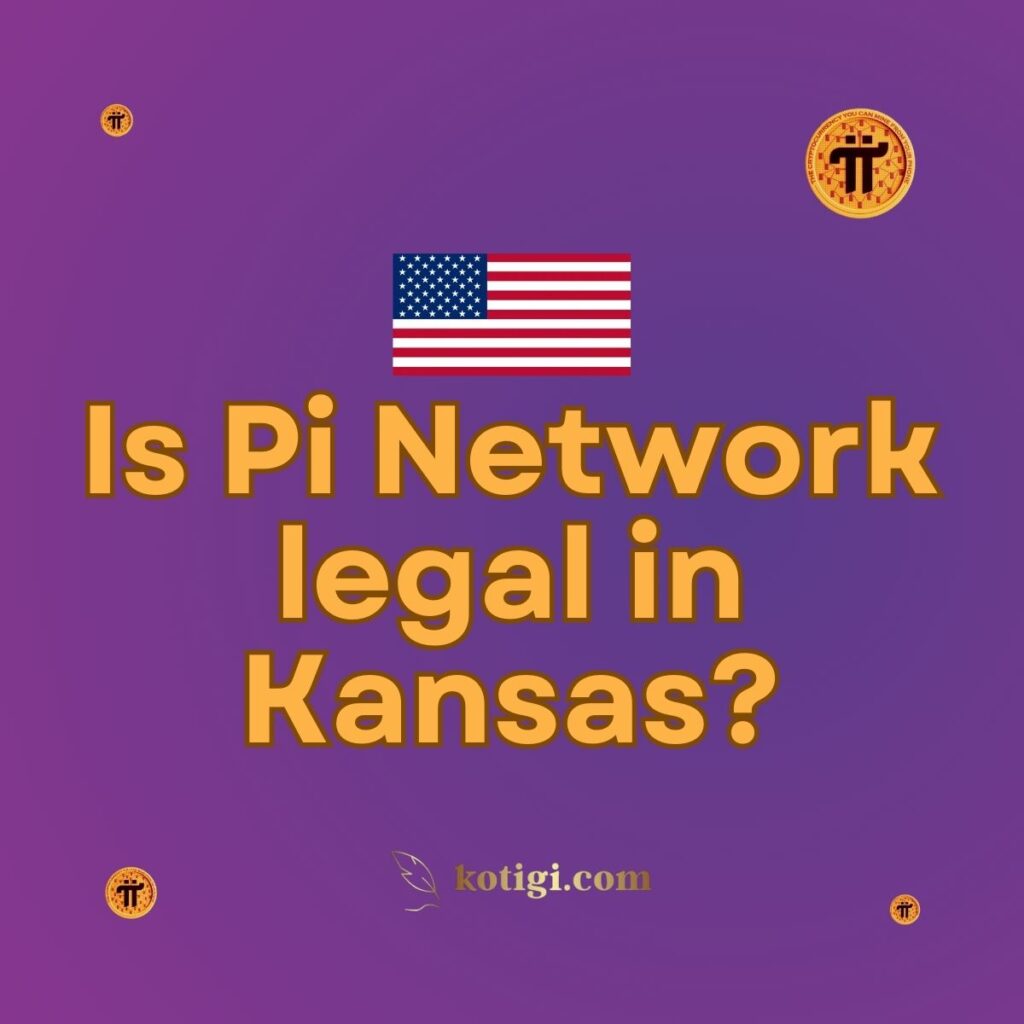
Is Pi Network legal in Kansas?
Yes, Pi Network is legal in Kansas. Residents can participate in Pi Network’s mobile mining without state-imposed restrictions. However, it’s essential for Kansas users to adhere to federal regulations regarding digital assets and stay informed on potential regulatory changes as Pi Network develops.
Introduction
Pi Network’s innovative approach to mobile mining has gained global interest, and users in Kansas are exploring whether participating in this platform is legally permissible. Currently, Kansas does not impose specific regulations on Pi Network, allowing residents to participate freely. However, as with all digital assets, Kansas users should consider both federal guidelines and state-level consumer protection laws. This article explores the legal status of Pi Network in Kansas, examines relevant federal regulations, and offers key insights into security, compliance, and local opportunities for users.
Kansas’ Regulatory Stance on Cryptocurrency
Kansas Cryptocurrency Regulations
Kansas has taken a neutral approach to cryptocurrency, allowing blockchain-based platforms like Pi Network to operate freely. The Kansas Office of the State Bank Commissioner (OSBC) monitors financial activities but does not directly regulate non-tradeable digital tokens like Pi, which currently lack monetary value.
Openness to Blockchain Innovation
Kansas supports technological advancements and innovation in blockchain, providing a favorable environment for digital currency experimentation. This open approach enables Kansas residents to engage with Pi Network without restrictions, supporting its mobile-based mining model and potential applications.
Federal Regulations Affecting Pi Network in Kansas
SEC Oversight of Digital Assets
The Securities and Exchange Commission (SEC) regulates assets considered securities, but since Pi Network’s tokens are currently non-tradeable, they do not fall under SEC jurisdiction. This enables Kansas residents to participate in Pi Network without federal securities registration, though this could change if Pi tokens gain value and become tradeable.
IRS Cryptocurrency Taxation Guidelines
The Internal Revenue Service (IRS) classifies digital assets as property, requiring the reporting of income or gains from cryptocurrencies. Currently, Pi tokens lack market value and are therefore exempt from federal taxation. However, Kansas residents should document their mining activity in case Pi tokens gain value in the future, aligning with federal tax requirements.
Consumer Protection and Data Security for Pi Network Users in Kansas
Kansas Consumer Protection Laws
Kansas’ Consumer Protection Act protects residents from fraudulent or misleading business practices. If Pi Network tokens gain value in the future, this act will safeguard Kansas residents against deceptive practices. Users can rely on these protections to pursue legal recourse if needed.
Data Security Recommendations for Kansas Residents
Since Pi Network operates as a mobile application, Kansas participants should prioritize data security practices. Implementing two-factor authentication (2FA) and using strong passwords can help users secure their accounts, reducing potential security risks as they engage with the platform.
Economic and Business Opportunities for Pi Network in Kansas
Kansas Tech Landscape and Blockchain Potential
Kansas has a growing tech sector with increasing interest in blockchain and fintech applications. While Pi tokens are not yet tradeable, Pi Network’s community-driven model could appeal to local businesses looking to explore blockchain technology, loyalty rewards, and digital engagement initiatives.
Potential for Business Partnerships
Kansas-based businesses interested in digital engagement may find future opportunities with Pi Network. Although Pi tokens cannot currently be used in transactions, the platform’s expanding community base may present possibilities for partnerships if Pi tokens eventually acquire tradeable status.
Environmental Compatibility of Pi Network’s Mining Model
Energy-Efficient Mining for Eco-Conscious Users
Pi Network’s mobile mining model is low-energy and environmentally friendly, making it a suitable option for users in Kansas who are mindful of sustainability. Unlike traditional cryptocurrency mining, which requires substantial energy, Pi’s approach aligns with Kansas’ commitment to reducing environmental impacts.
Supporting Sustainability Goals in Kansas
Kansas has made strides in renewable energy, and Pi Network’s minimal energy consumption aligns with these goals. Kansas residents can engage in mobile mining without the high energy demands associated with traditional mining, allowing for an environmentally friendly approach to digital currency mining.
Educational Resources on Cryptocurrency in Kansas
Blockchain and Fintech Programs in Kansas Universities
Kansas universities, such as Kansas State University and University of Kansas, offer resources in blockchain, fintech, and digital technology. Kansas participants in Pi Network can gain deeper insights into digital currencies and blockchain applications through these programs, enhancing their understanding of emerging technologies.
Local Events and Networking Opportunities
Kansas hosts a range of tech and blockchain meetups, conferences, and events that provide learning and networking opportunities for Pi Network users. Events like the Kansas City Fintech Conference offer insights into cryptocurrency trends and help users stay updated on industry developments and best practices.
Legal Considerations and Compliance for Pi Network Users in Kansas
Current Legal Status of Pi Network in Kansas
Currently, Pi Network is legal in Kansas, with no specific state-level restrictions preventing residents from participating. Kansas residents can freely mine Pi tokens on mobile devices, but they should remain aware of any changes in local or federal policies as the platform evolves.
Potential Regulatory Developments
As the digital currency landscape continues to evolve, Kansas may adopt new regulations for consumer protection or digital asset oversight. These changes could introduce compliance requirements for Pi Network participants in the state. Staying informed about potential regulations will help Kansas users navigate any changes effectively.
Conclusion
Pi Network is legal in Kansas, allowing residents to participate in its mobile mining ecosystem without additional state-imposed limitations. The state’s support for blockchain innovation, combined with a growing tech sector, creates an environment conducive to Pi Network’s mobile-based model. Kansas residents should follow federal guidelines, particularly around taxation and securities, and prioritize data security as they engage with Pi Network. As the regulatory landscape evolves, participants should monitor potential changes at both the state and federal levels.
Key Takeaways
- Legal Status: Pi Network is currently legal in Kansas, with no state restrictions.
- Federal Compliance: Kansas participants should adhere to SEC and IRS guidelines for digital assets.
- Consumer Protection: Kansas’ Consumer Protection Act safeguards residents from deceptive practices.
- Business Opportunities: Kansas businesses may find potential for digital engagement in Pi Network’s model.
- Environmental Benefits: Pi Network’s low-energy mining aligns with Kansas’ sustainability goals.
- Educational Resources: Kansas universities and tech events provide insights into blockchain for local Pi Network participants.





